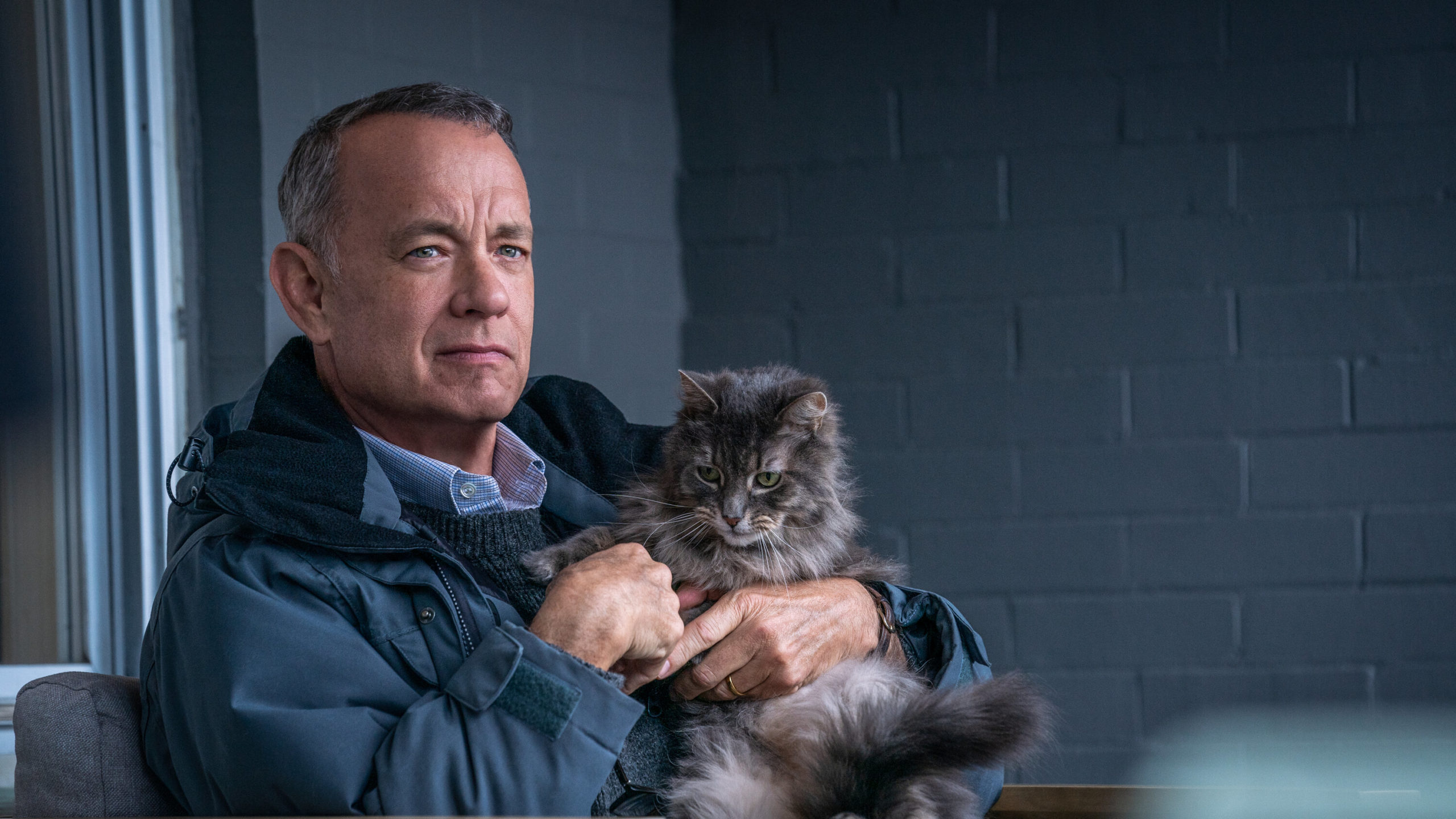In Marc Forster’s A Man Called Otto, Tom Hanks plays a grump. He patrols his neighborhood with a scowl on his face, hoping to poke fun and ultimately subvert our usual expectations of one of America’s favorite actors. Hanks dons this face happy to be the villain for a change, even if every audience member knows he will turn out to be the hero. For Forster and his leading man, the drama is a step down from previous work, an emotionally telegraphed, near-manipulative adaptation of a better book already adapted in Sweden to far greater results.
Otto is a friendless widower, brought back into the community by his new neighbors, a family led by Marisol, elevated by a superb Mariana Treviño. Marisol recruits Otto into her life, an opportunity for him to show his heart and humanity, providing a reason for this depressed man to keep living. And soon Otto’s life turns around; he sees friendship and community all around him. Unfortunately, it only lasts so long when he must unite with his neighbors to save their houses from a conniving, evil real estate company, the true villain in A Man Called Otto.
The film’s path is never in doubt, plot points navigated without need of a compass by director and audience alike, failing to surprise or stun in any way. Yet when the film hits an emotional peak with Hanks’ scrunched-up face turning into a smile, I felt my eyes begin to well up. It was undeserved, though, shallow in its trickery. The film unfairly banks on society’s collective view of Hanks as a loving father and grandfather, Mr. Rogers just in a different costume. But this film hasn’t earned that response; it’s reserved for the countless other stories and experiences that Hanks has led us through.
That’s not to say Hank gives a poor performance. He’s expectedly fine as Otto Anderson, a man that has loved and lost, whose heart, obviously, will grow by the film’s end. Treviño breathes excitement into this droll story as Marisol, bringing out the best in Hanks and pushing the film toward a greater sense of understanding. The Mexican actress radiates warmth and frantic joy. Without Treviño, A Man Called Otto would be a disappointment; with her it’s a fine, family watch with a simple, albeit heavy-handed message.
Despite employing flashbacks to show how Otto met and ultimately lost his wife, Forster’s film struggles to find meaning in such vignettes. They break up an already-slow story, dating the film even more, pushing it further towards standard fare. Inspiration seems to have been forgotten as the drama slides into normalcy. It sails, on rocky waters, by the strength of its source material, the beats that veteran screenwriter David Magee knows will stir up emotion. Fredrik Backman’s book was a mainstay bestseller; this adaptation will be lucky to be remembered by audience members a month after viewing.
For a film focused on the size of one man’s heart, A Man Called Otto lacks what its protagonist has in spades. It feels produced from a factory with its half-complete characters and surging score designed to tell people precisely when to feel something. It invests in that moment of emotion, desperate to have its audience shed a single tear rather than spending time to craft real people with actual wants, needs, sadness, or joy. Otto never feels like a man you’d live next to. He never feels like your neighbor; he might be a caricature of one, but far from the real thing.
A Man Called Otto is currently in theaters and expands wide Friday, January 13.

